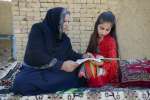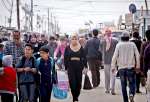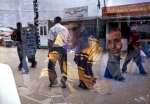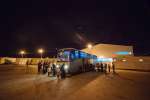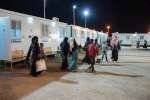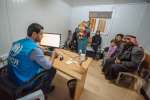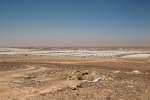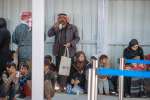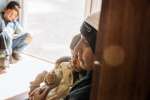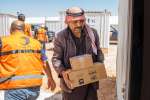Malala warns of education funding threat for Syrian refugees
News Stories, 13 July 2015
AZRAQ REFUGEE CAMP, Jordan, July 13 (UNHCR) – The international community must urgently increase education funding for Syrian refugees to avoid a lost generation resulting from the country's civil war, education activist Malala Yousafzai said on Monday (July 13).
The Nobel Peace Prize winner was on the second day of a visit to meet Syrian refugee children in Lebanon and Jordan that coincided with her 18th birthday.
"Education is a basic human right for every child. Being a refugee should not be used as an excuse for saying that we cannot afford this child's education," Malala told a news conference in Azraq camp, which is currently host to more than 20,000 Syrian refugees.
"There are rich countries in this world who can afford to spend money on weapons, who can afford to spend money on the war in Syria, but when it comes to education most of them have been quite stingy," she said.
UN agencies and their NGO partners have requested US$4.53 billion in 2015 to provide humanitarian and development assistance to more than four million Syrian refugees and the neighbouring countries and communities hosting them. Less than a quarter of that total had been received by the end of May, putting vital aid and services in jeopardy.
Of the $455 million requested for education this year, only USD 129 million has been received. This chronic underfunding will make it impossible to provide an education to the 752,000 Syrian refugee children in the region not currently enrolled in school.
UNHCR's Representative to Jordan Andrew Harper said funding shortages have already had a negative effect on school enrollment among Syrian refugees in Jordan.
"What we're seeing at the moment, because we're having to cut back on assistance because of the lack of donor support, is that some 20 percent of the children who were previously going to school are now not going," he said.
"Unfortunately we think that they are now working, or in some cases girls are being forced due to circumstances into early marriage. This is something which we should not allow to happen," he added.
During her visit to Azraq, Malala announced a $ 250,000 grant from her non-profit Malala Fund to provide tutoring and academic support for adolescent girls in the camp. The funding will be provided jointly to UNHCR and UNICEF, and among other initiatives will help young refugees prepare for their university entrance exams.
Malala also visited the shelter of 16-year-old Syrian refugee Muzon, herself a vocal advocate for education within the camp, particularly among young girls.
Muzon, who went to Oslo in December last year to see Malala receive her Nobel Peace Prize, was asked what message she would send to the international community on behalf of children in the camp.
"I would like them to know that even though we've suffered a lot, the kids here in the camps are still fighting for an education," she said. "They want to learn, they want to be better people, and they want their futures to be better than their pasts."
By Charlie Dunmore in Azraq refugee camp, Jordan








